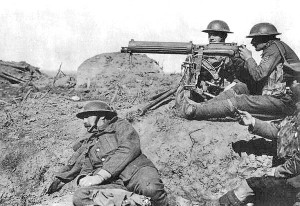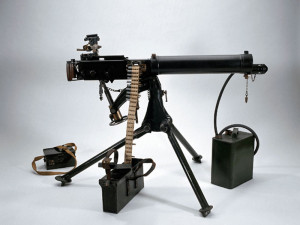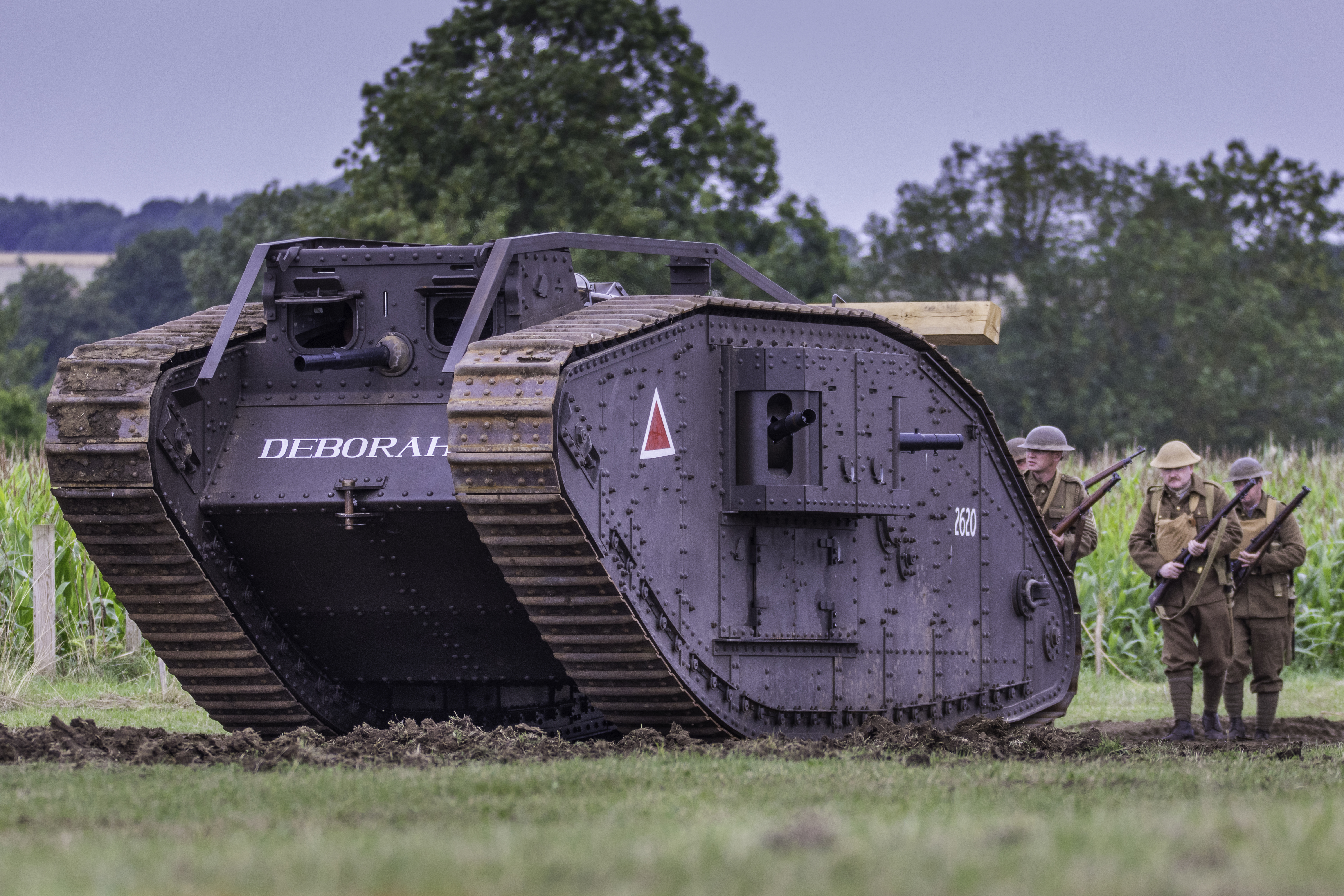VICKERS MACHINE GUN
GUN, MEDIUM, VICKERS .303”. The Grand Old lady of No-Mans Land. Without doubt, the finest medium machine gun ever made by anyone. Sustained fire that does exactly that. Water cooled, feeding belted .303” ammunition from canvas belts holding 250 rounds, this gun had a rate of fire of 10,000 rounds per hour, day upon day, in fact the only limiting factor was the supply of ammunition and if accuracy was vital a new barrel every hour.
The Vickers was designed by Hiram Maxim, American-born British inventor who moved from the United States to the United Kingdom. in 1897 setting up the Vickers sons and Maxim company. He then went on to re-design his earlier Maxim toggle lock, short recoil water cooled gun. Lighten almost every component, inverting the lock and by paring down where possible, design the gun that weighted 28lbs without its 7 pints of water. The tripod however weighed 40lbs and efforts to lighten this assembly resulted in loss of extreme accuracy and so, the mount remained at 40lbs. It was carried and set up by the No.1 in the 3 Man Team. No.2 carried the gun, No.3 carried the water can and as much ammunition as he could. Whole companies of men were often used to bring ammunition to the gun.
As stated, these early models made before the Boer War weighed 28lbs. and were known as the lightweights or 5 archers referring to the 5 slots under the back sight on the top cover. These early guns carried an “L” prefix to the serial number although when War started in 1914 many lightening cuts were left off in an attempt to ease production and these simplified guns were over 2lbs heavier at just over 30 lbs.
Production prior to the Great War was around one gun per day. Later, the gun was also produced in Lithgow in Australia. The cooling water in the jacket began to boil after about 3 belts at rapid rate, (750 rounds). The steam was led down a condenser hose into, normally, a 2 gallon can containing some water. At intervals, the condensed steam was poured back into the barrel jacket. Accurate ranges depended on what type of ammunition was being used
- 2,900 yards with Mk. 7,
- 3,500 yards with Mk.7z
- 4,500 yards with Mk. 8z
It might seem very strange, but in the quagmire, filth and water filled trenches and shell holes in places like Passchendaele, 1917, one of the hardest things to locate was water clean enough to keep the barrel jacket full.
The old story about letting rip with a few rounds of ammunition in order to make a brew is not true. The water in the jacket came out mixed with oil, asbestos from the gland packing and cordite fouling that would have produced a liquid even worse than Army tea.
When at last the Vickers was withdrawn from service in 1968, it was given a full military funeral at Bisley and many who used or worked on the Vickers were reduced to tears. However, it is still being used around the world and for example; the South Africans have converted their guns to fire 7.62mm. Nato ammunition. At least others know a good thing when they see it!!.

Vickers Medium Machine Gun .303″












